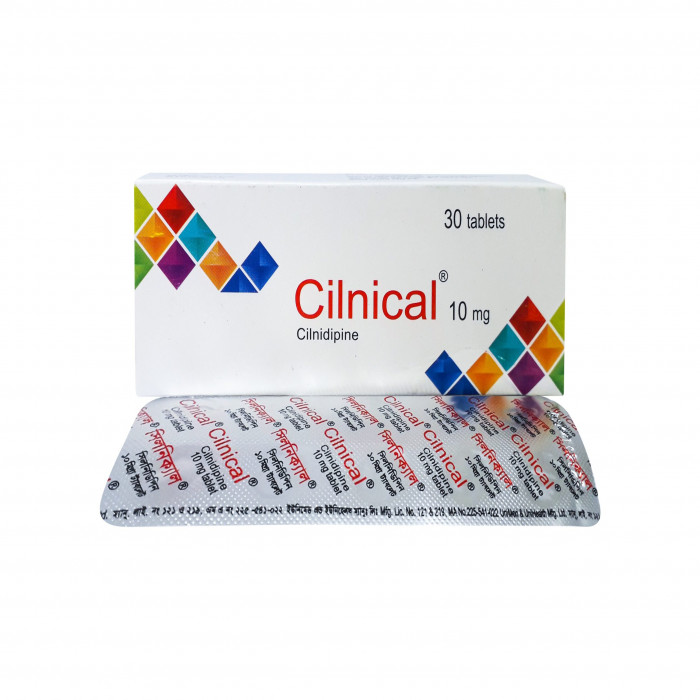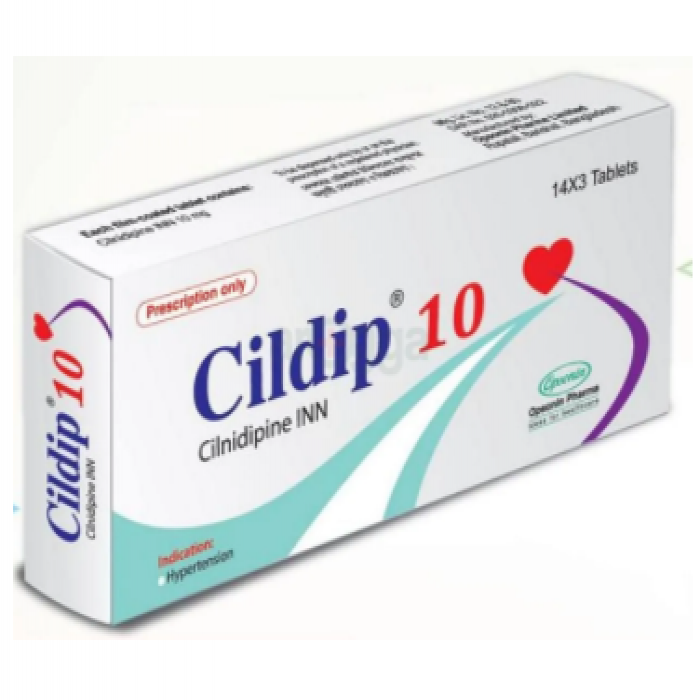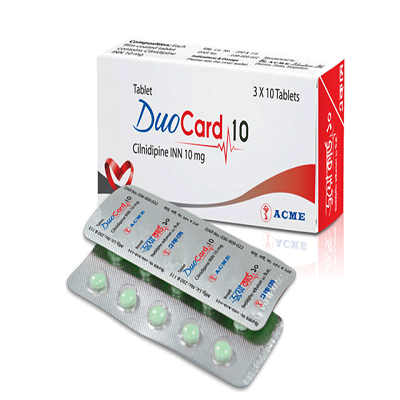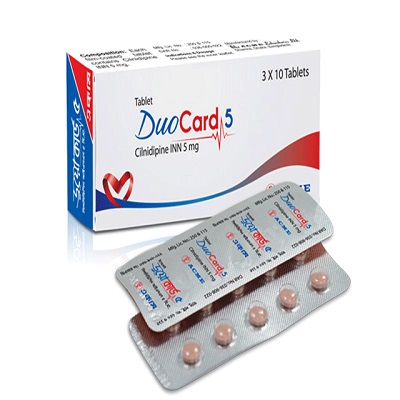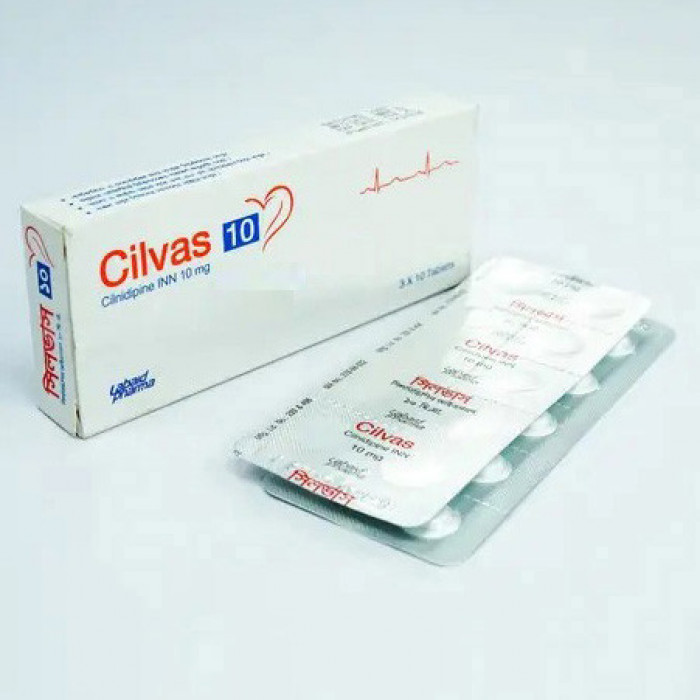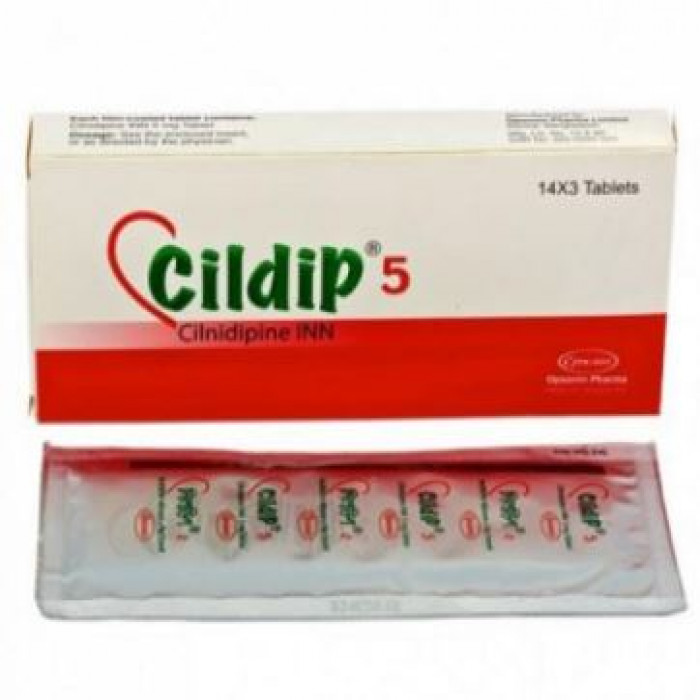
✔ 100% Authentic Product
👁️ Currently Viewing 1664
Generic Name Cilnidipine 5mg
Company Name: Opsonin Pharma Limited
Discount
Price: ৳ 105
MRP:
৳
112
6%
Off

100% Genuine Products, Guaranteed

Safe & Secure Payments, Always

Fast, Secure & Efficient Delivery

Proper Packaging
 Cash on Delivery - All over Bangladesh
Cash on Delivery - All over Bangladesh Regular Delivery - 12-24 Hours, Dhaka City* Charge Tk.39-59
Regular Delivery - 12-24 Hours, Dhaka City* Charge Tk.39-59 Regular Delivery - 24-48 Hours, Other Cities* Charge Tk.99-110
Regular Delivery - 24-48 Hours, Other Cities* Charge Tk.99-110
 ফ্রি ডেলিভারিঃ - ৯৯৯ টাকা+ অর্ডারে, ঢাকা
শহরে
ফ্রি ডেলিভারিঃ - ৯৯৯ টাকা+ অর্ডারে, ঢাকা
শহরে ফ্রি ডেলিভারিঃ - ২৯৯৯ টাকা+ অর্ডারে, ঢাকার
বাহিরে
ফ্রি ডেলিভারিঃ - ২৯৯৯ টাকা+ অর্ডারে, ঢাকার
বাহিরে
100% Genuine Products, Guaranteed
Safe & Secure Payments, Always
Fast, Secure & Efficient Delivery
Proper Packaging
 Cash on Delivery - All over Bangladesh
Cash on Delivery - All over Bangladesh Regular Delivery - 12-24 Hours, Dhaka City* Charge Tk.39-59
Regular Delivery - 12-24 Hours, Dhaka City* Charge Tk.39-59 Regular Delivery - 24-48 Hours, Other Cities* Charge Tk.99-110
Regular Delivery - 24-48 Hours, Other Cities* Charge Tk.99-110 ফ্রি ডেলিভারিঃ - ৯৯৯ টাকা+ অর্ডারে, ঢাকা
শহরে
ফ্রি ডেলিভারিঃ - ৯৯৯ টাকা+ অর্ডারে, ঢাকা
শহরে ফ্রি ডেলিভারিঃ - ২৯৯৯ টাকা+ অর্ডারে, ঢাকার
বাহিরে
ফ্রি ডেলিভারিঃ - ২৯৯৯ টাকা+ অর্ডারে, ঢাকার
বাহিরে
✅ Description:
Indications of Cildip 5
End-organ protection is one of the indications for cilnidipine in the treatment of hypertension. It's said to help older people, as well as those with diabetes and albuminuria. Patients with chronic renal disease are increasingly being prescribed cilnidipine. The term "hypertension" refers to the presence of elevated blood pressure. The force of blood pushed by the heart against the blood arteries causes blood pressure to rise. As a result, hypertension occurs when there is too much pressure on the blood vessels, which can damage them.
Pharmacology
Cilnidipine is a calcium channel blocker that is made up of dihydropyridines. Cilnidipine binds to the dihydropyridine binding sites of the L-type voltage-dependent calcium channel, inhibiting Ca2+ influx across the cell membranes of vascular smooth muscle cells, and inducing vasodilation. Cilnidipine blocks Ca2+ influx through sympathetic nerve cell membrane N-type voltage-dependent calcium channels. N-type voltage-dependent calcium channel inhibition was reported over a comparable range of medication doses as L-type voltage-dependent calcium channel inhibition. As a result, norepinephrine release from sympathetic nerve terminals would be inhibited. Cilnidipine is thought to reduce the reflex rise in heart rate that occurs after blood pressure is reduced.
Dosage & Administration
Adults: Take 5-10 mg after breakfast once a day. 20 mg once a day is a maximum dose.
Cilnidipine's safety in pediatric children has not been verified.
Because the elderly are more prone to hypotension, treatment should be started at the lowest dose possible (5 mg).
Interactions of Cildip 5
Quinidine, carbamazepine, phenytoin, rifampicin, cimetidine, and erythromycin are examples of antihypertensive and antipsychotic drugs that cause hypotension.
Contraindications
Individuals with known hypersensitivity to cilnidipine or any of the excipients, as well as patients with cardiogenic shock, recent MI, acute unstable angina, and severe aortic stenosis, should not take it.
Side-Effects of Cildip 5
Dizziness, flushing, headache, hypotension, peripheral edema, palpitations, GI problems, increased micturition frequency, lethargy, eye pain, and depression are the most prevalent side effects of Cilnidipine.
Pregnancy
Cilnidipine should not be given to pregnant women or women who are planning to get pregnant. It's also best to stay away from Cilnidipine if you're a breastfeeding mother. If the administration is absolutely necessary, the patient should be told to stop breastfeeding.
Precautions
Patients with substantial hepatic impairment, as well as those who have had serious adverse responses to calcium antagonists, should be given cilnidipine with caution. During the withdrawal, the dosage should be gradually reduced while being closely monitored.
Storage Conditions
Protect from light and moisture by storing below 30°C. Keep your distance from the children's reaches.
⚠️Disclaimer:
At ePharma, we’re committed to providing accurate and accessible health information. However, all content is intended for informational purposes only and should not replace medical advice from a qualified physician. Please consult your healthcare provider for personalized guidance. We aim to support, not substitute, the doctor-patient relationship.




